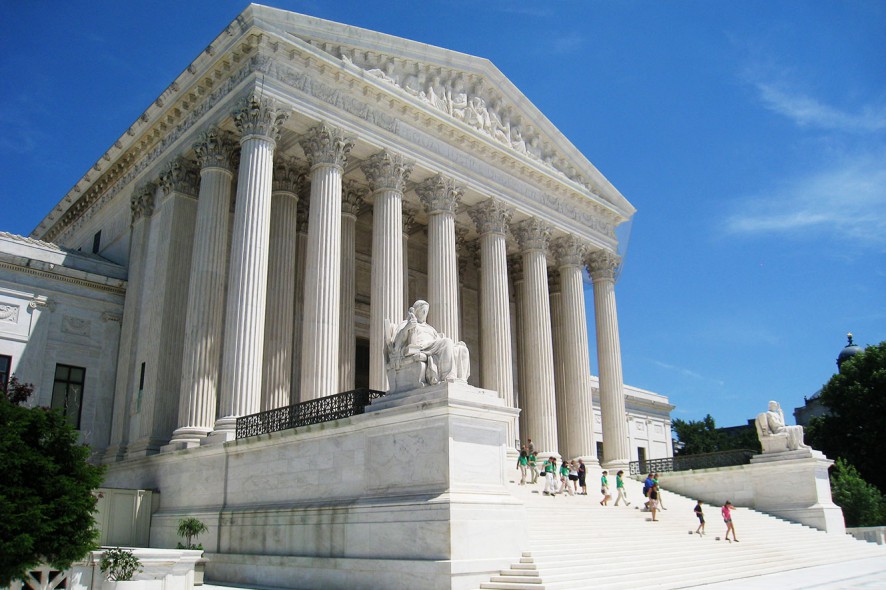United States Supreme Court: A Bench comprising of Sotomayor, Breyer and Kennedy, JJ., denied the writ of certiorari but gave directions for the constitutional rights of the prisoners.
These petitions address one aspect of what a prisoner subjected to solitary confinement may experience: the denial of even a moment in daylight for months or years. Petitioners were previously incarcerated in the Colorado State Penitentiary (CSP) and were held in what is often referred to as “administrative segregation,”. Now the state of theses prisoners undergoing their term of imprisonment was under question in this case. In administrative segregation often referred as solitary confinement, the offender was housed in a single cell approximately 90 square feet thereby restricting any vocal communication with other inmates except for prison staff and very limited opportunity for visitors. There was a small glass window that admits light but which because of its placement was inaccessible to look out. They remain in their cells at least 23 hours a day which was a case of complete isolation. It was also brought before the court that under then-operative Colorado Department of Corrections (CDOC) regulations, prisoners were allowed out of their cells five days per week, for at least “one hour of recreation in a designated exercise area which has metal grates consisting of holes and constitutes for the only exposure of any kind to fresh air being given to them.
The petitioners stated that during their time at CSP they were denied any out-of-cell exercise other than the prescribed hour which they alleged violated their Eighth Amendment rights to be free from cruel and unusual punishment.
The U.S. Court of Appeals for the Tenth Circuit reversed both denials, concluding that its prior precedents allowed “reasonable debate on the constitutionality of disallowing outdoors exercise for respected periods for which writ of certiorari has been instituted arguing that the Tenth Circuit had diverged from the common practice among the Courts of Appeals of allowing a deprivation of outdoor exercise only when it was supported by a sufficient security justification.
The Court being deeply grieved of the issue said that to deprive a prisoner of any outdoor exercise for an extended period of time in the absence of an especially strong basis for doing so was deeply troubling. Quoting Judge Kennedy from the 1979 ruling, Spain v. Procunier, 600 F. 2d 189, 200 (CA9 1979), that, in the absence of “an adequate justification” from the State, “it was cruel and unusual punishment for a prisoner to be confined for a period of years without opportunity to go outside.” The Court acknowledged that security concerns justified the non mingling of these offenders with other inmates but those generalized concerns did not explain why other exercise arrangements were not made owing to the vitality recognized by the Tenth Circuit keeping in mind the human rights issue as strictly the Constitution does not permit such total deprivation in the absence of a particularly compelling interest.
Accordingly Courts and corrections officials must remain alert to the constitutional problems raised by keeping prisoners in “near-total isolation” from the living world and even though the petitioners were correct that compelling security justification was essential in the analysis of the Courts of Appeals but the litigation before the lower courts here did not focus on the presence or absence of a valid security justification, as a resultant the factual record before this Court as well as the legal analysis provided by the lower courts was not well suited to the Court’s considering the question now and thus the writ of certiorari stood denied.[Apodaca v. Raemisch, No. 17-1284, dated 09-10-2018]







